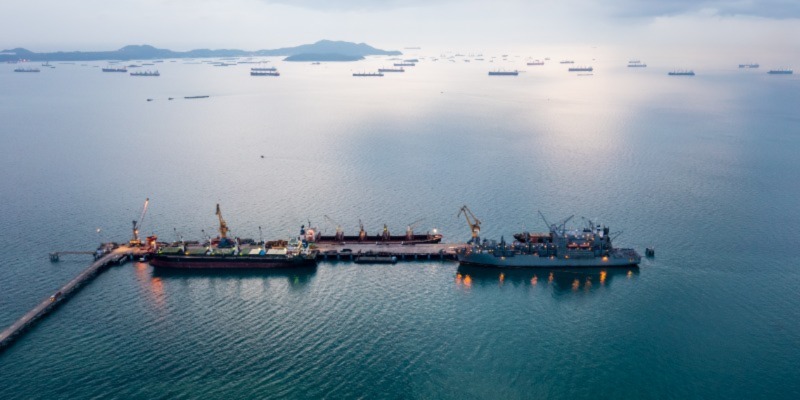
© NatStrat
On 24th April 2023, Bangladesh officially and finally released, after years of hesitancy and unwillingness to antagonise China, its Indo-Pacific Outlook (IPO), a 15-point strategy for a free, open, peaceful, secure, and inclusive Indo-Pacific. Releasing the document, Bangladeshi State Minister for Foreign Affairs, Md Shahriar Alam stated that the Indo-Pacific can be crucial for Bangladesh’s long-term resilience and prosperity. He said “The Indo-Pacific area’s collective share in global GDP, preponderance in international trade, enhanced climate action and growing technological dynamism can be key determinants for ensuring Bangladesh’s long-term resilience and prosperity.”
Notwithstanding these lofty principles, the fact is that the document was deliberately released to create the atmosphere for Bangladesh Prime Minister Sheikh Hasina’s three-nation tour to Japan, USA and the UK.
NatStrat looked at the “Indo-Pacific Outlook of Bangladesh”. These are the main takeaways:
Timing
Clearly timed with the visit of Prime Minister Hasina to ease tensions with the West, buy some goodwill, and in the process distance itself from China.
Guiding Principles
1. Father of the Nation Bangabandhu Sheikh Mujibur Rahman's foreign policy dictum 'Friendship towards all, malice towards none'.
2. Constitutional mandate on the conduct of international relations based on the principles of respect for national sovereignty and equality, political independence, non-interference in internal affairs, peaceful settlement of international disputes; and striving for the renunciation of the use of force in international relations and for general and complete disarmament.
3. Adherence to the relevant UN treaties and international conventions, as applicable, including the 1982 UN Convention on the Law of the Sea.
4. Constructive regional and international cooperation for sustainable development, international peace and security, humanitarian action, and fundamental rights and freedoms.
Objectives
1. Strengthen partnerships, promoting dialogue, maintaining maritime safety and security, combating transnational organised crime, promoting sustainable development, building resilient value chains, and enhancing health security. Due to Bangladesh’s geographical peculiarities and limitations, there is a strong emphasis on resources, security and climate change.
2. Strenghthen partnerships to ensure peace, prosperity, security and stability for all in the Indo-Pacific by promoting dialogue and understanding. The strategy underscores the importance of the United Nations Convention on the Laws of the Sea. It will aid in maintaining maritime safety and security by responding to emergencies at sea, conducting search and rescue operations, and upholding navigation and overflight rights.
3. Support to the regional and international efforts in the Indo-Pacific to combat transnational organised crime. This will be realised through a combination of normative and practical actions.
4. Promotion of peace and stability by laying the groundwork for an open, transparent, rules-based multilateral system for equitable and sustainable development in the Indo-Pacific and beyond through inclusive economic growth, right to development and shared prosperity for all.
5. Building resilient global value chains, leveraging the domestic agriculture, manufacturing and service sectors, which will better manage future crises and disruptions as well as promote an uninterrupted flow of commerce in the Indo-Pacific.
6. Enhancement of health security by collaborating and coordinating a resource to future pandemics. Ensuring global access to vaccines, diagnostics and medical facilities and assistance is also required.
On India
The strategy hints at India while referring to “collaboration with sub regional partners and relevant organisations”. It could be interpreted to include BIMSTEC, SAARC and the Colombo Security Conclave. The word “inclusive” in Bangladesh's aspiration for the Indo-Pacific resonates with India’s own Indo-Pacific vision. Here, inclusive also fully addresses China’s sensitivities.
What is missing
The strategy steers clear of any direct references to military competition or geopolitical rivalries. Focus is kept on non-traditional or sub-conventional security aspects. No reference to ASEAN and its centrality in the Indo-Pacific region.
Conclusion
The areas of priority listed in the Outlook are a combination of domestic and international imperatives. The document seeks to serve internal political objectives while also balancing external interests.It is a diplomatic sleight of hand. It is meant to appease the US and the West by appearing to be a part of the Indo-Pacific strategy, and yet be broad and ambigious enough not to offend the Chinese. While this is a noble effort at distancing Bangladesh from geopolitical rivalry between the two major powers, it is unlikely to satisfy either, and certainly not the US.
With this document, Prime Minister Hasina’s government has however made a much needed overture to the US, but it needs to do a lot more.
It is in Bangladesh's interest that it does not allow China to use its economic and military muscle to dominate and influence Bangladesh’s hard won freedom and independent foreign policy. It needs reminding that China, together with its proxy state, Pakistan, had actively blocked and opposed the birth of Bangladesh as an independent nation in 1971.
China is no friend of Bangladesh. It is using Bangladesh as a pawn in a larger strategic game. Bangladesh’s biggest export market for its largest export products, readymade garments, is the US and EU.